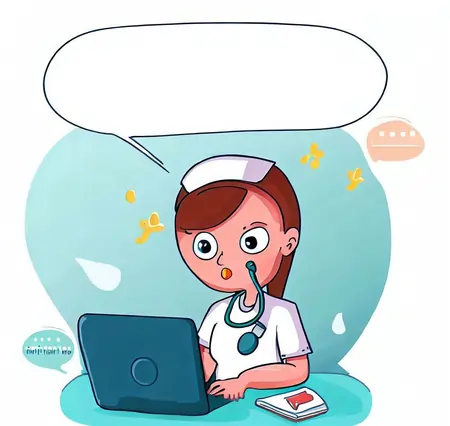Mastering the Art of Nursing Terminology: Ensuring Precision in Your Assignments

Welcome to our thorough guide on learning nursing terminology and making sure it is used correctly in assignments. As aspiring nurses, you will come across a wide variety of medical jargon that is necessary for clear communication and providing safe patient care. In order to improve the caliber of your assignments and, ultimately, your nursing practice, this blog aims to arm you with the knowledge and abilities to confidently and accurately use nursing terminology.
The nursing profession places a high value on precise and clear communication. Your assignments will accurately reflect both your competency as a nursing student and your understanding of the subject matter if you use the appropriate nursing terminology. Also important in interdisciplinary healthcare settings, where collaboration and seamless information exchange are essential to achieving the best possible patient outcomes, is the promotion of standardized communication through the use of appropriate language and terminology.

In addition to impressing your professors, using nursing terminology in your assignments will help you communicate with coworkers and healthcare providers effectively throughout your career. The foundations of nursing terminology, typical errors to avoid, and techniques to improve your command of medical terminology will all be covered in this blog.
Understanding Nursing Terminology's Importance in Assignments:
A wide variety of terminologies and languages are distinctive to the medical industry. These words help healthcare professionals communicate more effectively and are the backbone of medical discourse. This is especially important in the field of nursing because the language used can have a big impact on patient outcomes. Assignments in nursing studies evaluate both your knowledge of the subject and your proficiency in speaking the nursing language. Therefore, using nursing terminology correctly is an essential component of nursing assignments. This blog post seeks to provide a thorough overview of how to use nursing language and terminology in your assignments.
It is crucial to comprehend why nursing terminology is so important in the first place before we delve into how to ensure its proper use. The foundation of communication in the healthcare industry is nursing jargon. It contains terms, abbreviations, and symbols that nurses use to comprehend and accurately communicate the health status of their patients. When you correctly use these terms in your assignments, you show that you are knowledgeable about the subject and that you are prepared to work as a qualified nurse.
Additionally, using the proper terminology helps you keep your assignments consistent and clear. This is crucial because ambiguity can cause misunderstandings, which in the context of healthcare could have grave repercussions. Using the appropriate language in your assignments can also help you demonstrate your proficiency, communicate complex medical concepts effectively, and—most importantly—make your work more credible.
H3: Learning and Mastering the Nursing Terminology:
Learning and mastering these terms is the first step in making sure you use nursing terminology correctly in your assignments. Textbooks and reliable online sources can be a huge help in this situation. The majority of nursing textbooks include a glossary with definitions of words used frequently in the industry. A thorough understanding of various terms, their etymologies, and their applications can be found in some textbooks that are solely devoted to the subject of medical terminology.
You can use online resources like nursing terminology databases or medical dictionaries to enhance your learning. With the help of these technological resources, you can conduct term searches, discover their definitions, and comprehend how they apply to nursing. By participating in conversations, writing exercises, and in-depth reading about nursing topics, you can also practice using these terms. Your fluency will be greatly enhanced if you regularly incorporate nursing terminology into your everyday learning activities.
Correctly Using Nursing Terminology in Assignments:
Understanding nursing jargon is only one aspect of the situation. The second is to correctly apply them in your assignments. The proper use of language and terminology in the context of nursing assignments entails using the appropriate terms in the appropriate context, maintaining consistency, avoiding ambiguity, and adhering to grammatical and syntactic rules.
Keep in mind that each nursing term has a distinct meaning and should only be used in specific circumstances. Misuse of these terms can result in misunderstandings and miscommunication, which can be disastrous in a healthcare setting. Therefore, before using a term in your assignments, always make sure you understand its meaning and context.
Continuity is yet another crucial element. Make sure to use the same term to describe the same situation throughout your assignment whenever you use a specific term to describe a particular condition or procedure. Switching between terms can leave readers perplexed and reduce the coherence of your assignment.
Reviewing, editing, and using criticism to get better:
It is crucial to edit and proofread your assignment after writing it. Look for instances during revision where you might have abused or overused certain terms. Keep in mind that improving your assignment doesn't always mean using complex terms. Instead, your main focus should be on accuracy and clarity.
You can find typos, grammatical errors, and consistency issues in your use of nursing terminology by proofreading. Grammarly and other software tools can be of great assistance, but they cannot take the place of a thorough human review of your work. Therefore, after finishing your writing, always allot enough time for proofreading.
Receiving comments on your work from professors, peers, or even qualified editors can be a helpful tactic for enhancing your use of nursing terminology. They can make suggestions for improvement and flag instances where you might have used terms incorrectly or inappropriately. Think of their criticism as a chance to grow and improve your command of nursing terminology.
Utilizing the Potential of Technology:
Technology can now significantly assist you in ensuring the proper use of nursing terminology in your assignments thanks to the development of digital learning tools. Numerous software and app tools are available to help nursing students learn the lingo used in their field. These resources include a variety of features, including games based on medical terms, quizzes, practice questions, and flashcards. You can make learning nursing terminology fun and effective by incorporating these technological tools into your learning process.
Additionally, you can enhance your writing by using a digital writing assistant like Grammarly, Ginger, or ProWritingAid. While they might not catch every nursing jargon, they can help you write more clearly and correctly by correcting your grammar, punctuation, and overall writing style. As a result, you ought to think about using these tools when you're writing your nursing assignments.
Maintaining a professional development plan:
Learning nursing terminology is an ongoing process rather than a one-time task. The medical industry is constantly changing, and new words and ideas are frequently introduced. You must therefore pursue ongoing professional development if you want to ensure that the nursing language in your assignments is used appropriately.
Attend nursing-related seminars, webinars, workshops, and conferences. Take part in online courses and keep abreast of new findings and developments in the field. You'll become familiar with new terminologies and learn how to use them in your academic writing by doing this. This routine will not only improve your homework but also keep you abreast of industry developments.
The Effect of Diversity and Culture on Nursing Terminology:
The effects of culture and diversity must also be taken into account when using nursing language. Nursing is a global profession that involves providing care to patients from various linguistic and cultural backgrounds. Therefore, it is essential for nursing communication to be culturally competent.
Be aware that not all terms are culturally or linguistically universal, and that what might be regarded as acceptable in one culture may not be in another. Consider the diversity of your potential audience when writing about culturally sensitive topics in your assignments and modify your language as necessary. This cultural sensitivity not only broadens the audience for your writing but also gets you ready for challenging nursing situations.
Conclusion:
In conclusion, every nursing student should have a solid foundation in nursing terminology. By making sure that medical terminology is used correctly in your assignments, you demonstrate your commitment to effective communication and professionalism within the healthcare industry.
We have emphasized the significance of accuracy, precision, and clarity throughout this blog post when using nursing terminology. You can improve the standard of your assignments and give yourself more confidence for your future as a nurse by following these guidelines. Remember that the words you choose can affect patient outcomes, interdisciplinary collaboration, and the effectiveness of healthcare as a whole.
As you advance in your nursing career, look for opportunities to increase your understanding of medical terminology. To keep up with developments and changes in the healthcare industry, you should frequently review and update your knowledge of nursing jargon. Imitate the methods used by renowned professionals who have devoted their careers to improving nursing communication, such as Dr. Emily Collins.
By mastering nursing terminology, you integrate yourself into the medical industry and are able to make valuable contributions to patient care, research, and education. So embrace the unique linguistic nuances of nursing, practice accuracy in your work, and set out on a fulfilling journey to becoming a knowledgeable and caring nurse.
The future of healthcare and the lives of patients could be greatly impacted by your effective use of nursing terminology. Always keep in mind that words have power. Best wishes for a prosperous nursing career and happy learning!